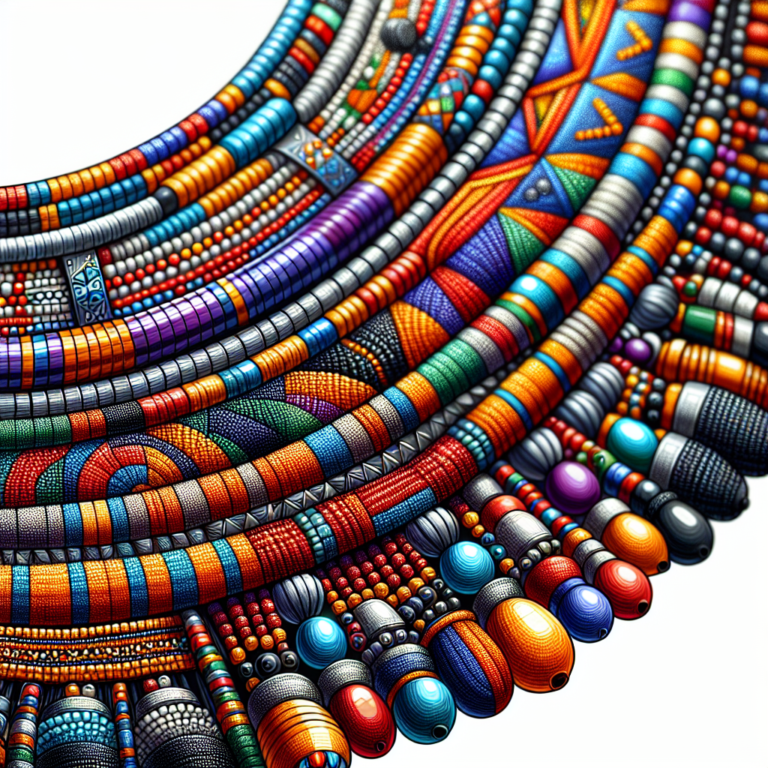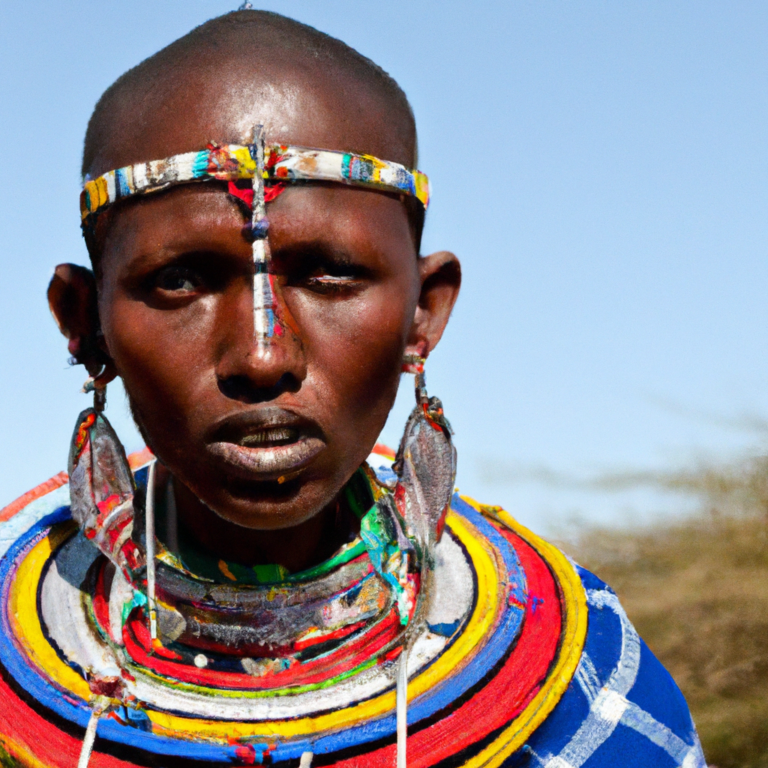What Is The Status Of Women’s Rights In Kenya?
In Kenya, the status of women’s rights remains a topic of significant concern and ongoing debate. While progress has been made to improve gender equality, challenges persist that hinder the full realization of women’s rights. This article explores the current landscape, highlighting key issues such as education, economic empowerment, reproductive health, and cultural norms that shape the experiences of women in Kenya. By shedding light on these complexities, we hope to deepen our understanding and inspire meaningful action towards a more equitable future for all Kenyan women.

This image is property of pixabay.com.
Legal Protections and Legislation
The Constitution of Kenya
The Constitution of Kenya provides a solid framework for the protection of women’s rights. It guarantees equality before the law and prohibits discrimination based on gender. Article 27 explicitly recognizes the need to address historical gender imbalances and provides for affirmative action measures to promote women’s representation in various spheres. It also acknowledges the importance of eliminating discrimination and violence against women.
Penal Code and Sexual Offenses Act
The Penal Code and Sexual Offenses Act are crucial legal instruments in combating violence and sexual offenses against women. They criminalize actions such as rape, sexual assault, trafficking, and domestic violence. These laws aim to provide a safe environment for women, holding perpetrators accountable for their actions, and ensuring justice for survivors.
Domestic Violence Act
The Domestic Violence Act specifically addresses the issue of domestic violence, which is a significant concern for many women in Kenya. This legislation provides protection orders that survivors can obtain from the courts to keep their abusers at a distance and secure their safety. It also grants the police the power to arrest abusers without a warrant in cases of imminent harm.
Gender Equality and Empowerment
Government Initiatives
The Kenyan government has taken various steps to promote gender equality and women’s empowerment. It has established the National Gender and Equality Commission, which works towards eliminating gender discrimination and advancing gender equality in all sectors of society. Additionally, the Ministry of Public Service, Youth, and Gender Affairs has implemented initiatives like the Affirmative Action Social Economic Fund and the Women Enterprise Fund to enhance women’s economic empowerment.
Political Representation
Kenya has made significant progress in increasing women’s political representation. The Constitution reserves a minimum of one-third of all elective and appointive positions for either gender. This provision has contributed to a noticeable increase in women’s participation in politics, with women now holding key leadership positions in parliament, the judiciary, and various government bodies.
Access to Education and Employment
The government recognizes the importance of education and equal opportunities for women. Efforts have been made to eliminate barriers to education and ensure equal access at all levels. Additionally, policies like the National Employment Authority Act aim to increase women’s access to employment opportunities and promote gender equality in the workforce.
Violence against Women
Physical and Sexual Violence
Physical and sexual violence remains a significant challenge for women in Kenya. Despite the existence of laws criminalizing such acts, implementation and enforcement are often lacking. Efforts must be made to strengthen the justice system’s response to ensure survivors receive the support they need and that perpetrators are held accountable.
Female Genital Mutilation
Female genital mutilation (FGM) is a deeply ingrained cultural practice that violates the rights of women and girls. The Kenyan government has outlawed FGM through the Prohibition of Female Genital Mutilation Act. However, the practice persists in certain communities. Continued awareness campaigns, education, and community engagement are essential to eradicate this harmful tradition.
Child Marriage
Child marriage remains a concern in some parts of Kenya, despite being prohibited by the law. Poverty, cultural practices, and limited educational opportunities contribute to this issue. The government, in collaboration with civil society organizations, must continue efforts to raise awareness, enforce the law, and provide support to vulnerable girls.
Reproductive Health and Rights
Access to Reproductive Healthcare
Access to reproductive healthcare services is crucial for women’s well-being. The Kenyan government has taken steps to improve access by providing free maternal healthcare services and establishing reproductive health clinics. However, challenges such as inadequate facilities, limited resources, and cultural barriers still hinder some women’s access to these services, particularly in rural areas.
Family Planning and Contraception
Promoting family planning and access to contraception is vital for women’s reproductive rights. The government has implemented initiatives like the Tunza Family Health Network, which offers affordable reproductive health services and education. Increasing awareness, expanding services, and addressing cultural barriers are essential to ensuring women can make informed choices about their reproductive health.
Maternal Health
Improving maternal health is a priority for the Kenyan government. Efforts have been made to reduce maternal mortality rates through initiatives such as the Beyond Zero Campaign, which aims to provide comprehensive maternal and child healthcare services. Despite progress, challenges like inadequate facilities, skilled healthcare providers, and transport infrastructure persist, particularly in rural areas.
Gender-Based Discrimination
Widow Inheritance
Widow inheritance, a cultural practice where a widow is expected to marry a male relative of her deceased husband, is a form of gender-based discrimination. The widow is often subjected to harmful traditional practices and denied her rights. Government and civil society efforts must continue to raise awareness, change societal norms, and protect widows’ rights.
Property and Land Rights
Women in Kenya face challenges in securing property and land rights. Discriminatory inheritance practices and cultural norms often prevent women from owning land. The government has taken steps to address these issues by enacting legislation like the Matrimonial Property Act. However, effective implementation and enforcement are crucial to ensuring women’s full enjoyment of their property rights.
Discrimination in Divorce and Custody Cases
Women often face discrimination in divorce and custody cases, with cultural norms and biased attitudes prevailing. The legal framework, including the Marriage Act and the Children’s Act, provides for gender equality in divorce and custody matters. However, ensuring that these laws are effectively implemented and that women are not subjected to discriminatory treatment is essential for protecting their rights.
Child Rights and Protection
Child Marriage and Trafficking
Child marriage and trafficking remain serious concerns in Kenya. Efforts have been made to raise awareness, improve law enforcement, and provide support to prevent child marriages. Strong collaboration between government agencies, civil society organizations, and communities is vital to addressing these issues effectively.
Access to Education
While education access in Kenya has improved overall, challenges persist, particularly for girls. Cultural practices, early pregnancies, and poverty often hinder girls’ access to education. Ongoing efforts to address these barriers, including providing scholarships, building schools, and promoting inclusive policies, are crucial for ensuring all children, regardless of gender, receive quality education.
Female Genital Mutilation among Minors
The practice of female genital mutilation among minors is a grave violation of girls’ rights. The Prohibition of Female Genital Mutilation Act criminalizes this practice, but challenges remain in enforcing the law and changing cultural attitudes. Strengthening collaboration between law enforcement, healthcare providers, and communities is essential to protect girls from this harmful practice.
Women in Leadership and Decision-Making
Representation in Politics and Government
Kenya has made commendable progress in increasing women’s representation in politics and government. Constitutional provisions and affirmative action measures have resulted in more women holding significant positions in parliament, the executive branch, and other key decision-making bodies. Continued efforts to promote women’s leadership, dismantle gender stereotypes, and enhance women’s participation are vital.
Corporate and Boardroom Leadership
Women’s representation in corporate and boardroom leadership roles remains low. The government has encouraged gender diversity through initiatives like the Women on Boards program, which aims to increase women’s representation on corporate boards. Encouraging equal opportunities, addressing gender biases, and implementing policies promoting diversity will contribute to greater gender equality in corporate leadership.
Women’s Civil Society Organizations
Women’s civil society organizations play a crucial role in advocating for women’s rights and addressing gender inequalities. These organizations provide support, resources, and raise awareness about the challenges women face. Strengthening collaboration between the government, civil society organizations, and the public is essential to effectively address women’s issues and promote gender equality.
Economic Empowerment and Entrepreneurship
Access to Credit and Financial Services
Access to credit and financial services is vital for women’s economic empowerment. The government has implemented initiatives like the Women Enterprise Fund and the Uwezo Fund to provide financial support to women-owned businesses. However, more efforts are needed to address challenges such as limited access to credit, lack of collateral, and gender biases within the financial sector.
Promoting Women-Owned Businesses
Promoting women-owned businesses is crucial for enhancing women’s economic empowerment. Initiatives like the National Industrial Training Authority’s Women in Manufacturing Program support skills development and entrepreneurship training for women. Encouraging gender-responsive policies, providing mentorship, and facilitating access to markets will contribute to the growth and sustainability of women-owned businesses.
Gender Pay Gap
The gender pay gap remains a challenge in Kenya, with women often earning less than men for similar work. Efforts must be made to address factors contributing to the pay gap, such as occupational segregation, discriminatory practices, and gender biases. Implementing fair pay policies, promoting transparency, and ensuring enforcement of equal pay legislation are essential steps towards achieving gender pay equity.
Challenges and Remaining Gaps
Cultural and Traditional Beliefs
Cultural and traditional beliefs continue to present challenges to women’s rights in Kenya. Deep-rooted gender stereotypes, harmful practices, and patriarchal norms hinder progress towards gender equality and limit women’s opportunities. Ongoing efforts to challenge and change these beliefs through education, awareness campaigns, and community engagement are essential for addressing these challenges.
Implementation and Enforcement of Laws
While Kenya has laws and policies in place to protect women’s rights, effective implementation and enforcement remain areas of concern. Challenges such as corruption, inadequate resources, and limited training often hinder the justice system’s ability to provide timely and effective remedies for survivors of violence and discrimination. Strengthening institutions, providing adequate resources, and enhancing capacity building can help address these gaps.
Societal Attitudes and Gender Stereotypes
Societal attitudes and gender stereotypes perpetuate gender inequalities and discrimination. Deep-seated biases contribute to the exclusion of women from decision-making processes, contribute to violence against women, and limit women’s economic empowerment. Comprehensive awareness programs, education, and media campaigns are essential in challenging and changing these attitudes and stereotypes to promote gender equality.
Women’s Rights Advocacy and Activism
Women’s Rights Organizations
Women’s rights organizations play a crucial role in advocating for women’s rights, providing support to survivors, and raising awareness about women’s issues. Organizations like the Federation of Women Lawyers (FIDA Kenya) and the Coalition on Violence Against Women (COVAW) have been at the forefront of promoting women’s rights, providing legal assistance, and driving policy change.
Feminist Movements
Feminist movements in Kenya have been instrumental in advocating for gender equality and women’s rights. These movements strive to challenge and dismantle patriarchal systems, address societal inequalities, and amplify women’s voices. Their efforts have led to significant advancements in women’s rights, increased awareness, and policy reforms.
Campaigns and Awareness Programs
Campaigns and awareness programs are vital tools in challenging gender inequalities, changing societal attitudes, and promoting women’s rights. Initiatives such as the 16 Days of Activism Against Gender-Based Violence, International Women’s Day, and focused awareness campaigns on issues like femicide and gender-based violence raise public awareness, engage communities, and encourage action towards gender equality.
In conclusion, Kenya has made significant strides in promoting women’s rights. The legal framework provides comprehensive protections and promotes gender equality. However, challenges remain in implementation and enforcement. Cultural beliefs, societal attitudes, and gender stereotypes continue to hinder progress towards full gender equality. Continued efforts, collaboration between government, civil society organizations, and communities, as well as sustained advocacy and activism, are crucial for achieving women’s rights and gender equality in Kenya.







